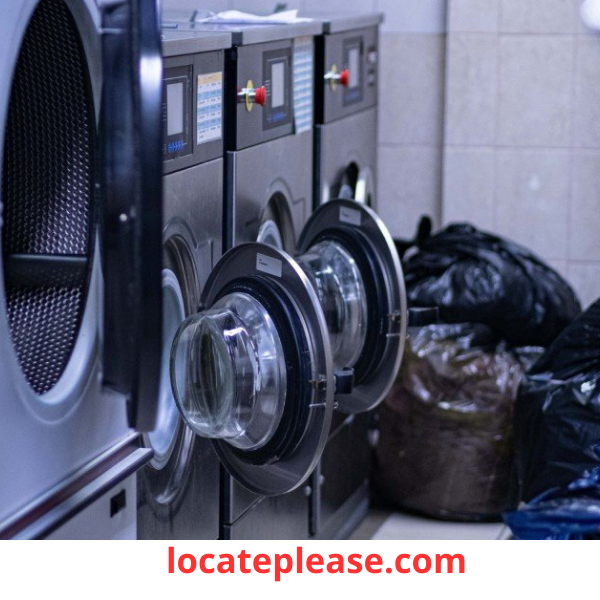The debate over whether to wash clothes by hand or use a washing machine has persisted for decades. While modern technology has made washing machines a staple in most households, there are still situations where hand-washing remains the preferred method. This article explores the advantages and disadvantages of both approaches, helping you decide which method best suits your needs.
The Case for Washing Clothes By Hand
Advantages
- Gentle on Delicate Fabrics
Hand-washing is ideal for delicate fabrics like silk, lace, and wool that can be damaged by the agitation of a washing machine. The careful handling ensures these items retain their shape, texture, and color. - Energy Efficiency
Washing clothes by hand doesn’t require electricity, making it an eco-friendly option. This is particularly beneficial for those looking to reduce their carbon footprint or live in areas with limited access to power. - Cost-Effective
For individuals without access to a washing machine, hand-washing eliminates the need for expensive appliances or laundromat visits. All you need is water, detergent, and a basin. - Control Over the Process
Hand-washing allows you to monitor the cleaning process closely. You can target stains, adjust water temperature, and ensure thorough rinsing—something machines may not always achieve. - Quiet and Portable
Unlike washing machines, hand-washing is silent and can be done anywhere, from your kitchen sink to a bucket in a small apartment or while traveling.
Disadvantages
- Time-Consuming
Washing clothes by hand is labor-intensive and can take significantly longer than using a machine, especially for large loads or heavily soiled garments. - Physically Demanding
Scrubbing, wringing, and rinsing clothes by hand can be physically exhausting, particularly for people with limited strength or mobility. - Inconsistent Results
Without proper technique, hand-washing may lead to uneven cleaning or leftover soap residue if not rinsed thoroughly. - Water Usage
Contrary to popular belief, hand-washing can sometimes use more water than a modern, energy-efficient washing machine, especially if multiple rinse cycles are required.
The Case for Using a Washing Machine
Advantages
- Convenience and Speed
Washing machines save time and effort by automating the entire process. With just the push of a button, you can clean large quantities of laundry in under an hour. - Consistent Results
Machines provide uniform cleaning, ensuring all items are washed, rinsed, and spun dry evenly. Advanced models also offer specialized cycles for different fabrics and soil levels. - Handles Heavy Loads
Washing machines excel at handling bulky items like blankets, towels, and jeans that would be cumbersome to wash by hand. - Modern Features
High-efficiency (HE) washing machines conserve water and energy, while smart features like Wi-Fi connectivity and app controls make the process even easier. - Reduces Physical Strain
For those with physical limitations, washing machines eliminate the need for strenuous scrubbing and wringing.
Disadvantages
- Initial Cost
Purchasing a washing machine can be expensive, and maintenance or repair costs may add up over time. - Environmental Impact
Traditional washing machines consume significant amounts of water and electricity, although newer models are designed to mitigate this issue. - Risk of Damage
Aggressive spinning and tumbling can stretch, shrink, or tear delicate fabrics if not sorted properly. Overloading the machine can also compromise cleaning efficiency. - Dependency on Technology
Power outages or mechanical failures can render a washing machine useless, leaving you without a backup plan.
Common Questions About Washing Clothes
1. Is hand-washing better for the environment?
It depends. While hand-washing avoids electricity usage, it may waste more water due to inefficient rinsing. Modern HE washing machines are often more sustainable in terms of resource conservation.
2. Can I mix methods for optimal results?
Absolutely! Many people opt to pre-treat stains or hand-wash delicate items before tossing them into the machine. Combining both methods can maximize garment longevity and cleanliness.
3. What about travel or off-grid living?
For travelers or those living off-grid, hand-washing is practical and portable. Compact, manual washing tools like plunger-style washers or portable spin dryers can bridge the gap between traditional hand-washing and machine convenience.
4. How do I protect delicate fabrics in a washing machine?
Use a mesh laundry bag to shield delicate items, select the gentle cycle, and avoid high-speed spins. Always check care labels for specific instructions.
5. Which method is more cost-effective long-term?
While hand-washing saves on appliance costs, the time and effort involved may outweigh its benefits for busy individuals. Investing in an energy-efficient washing machine can pay off in the long run through saved time and consistent performance.
Conclusion: Choosing the Right Method for You
Both hand-washing and machine-washing have their merits, and the choice ultimately depends on your lifestyle, priorities, and circumstances. If you value sustainability, have delicate fabrics, or lack access to a washing machine, hand-washing might be your go-to solution. On the other hand, if convenience, speed, and handling larger loads are important, a washing machine is likely the better option.
By understanding the strengths and limitations of each method, you can tailor your approach to suit your needs. Whether you’re scrubbing clothes by hand or letting a machine do the work, the goal remains the same: clean, fresh-smelling clothes that stand the test of time.






